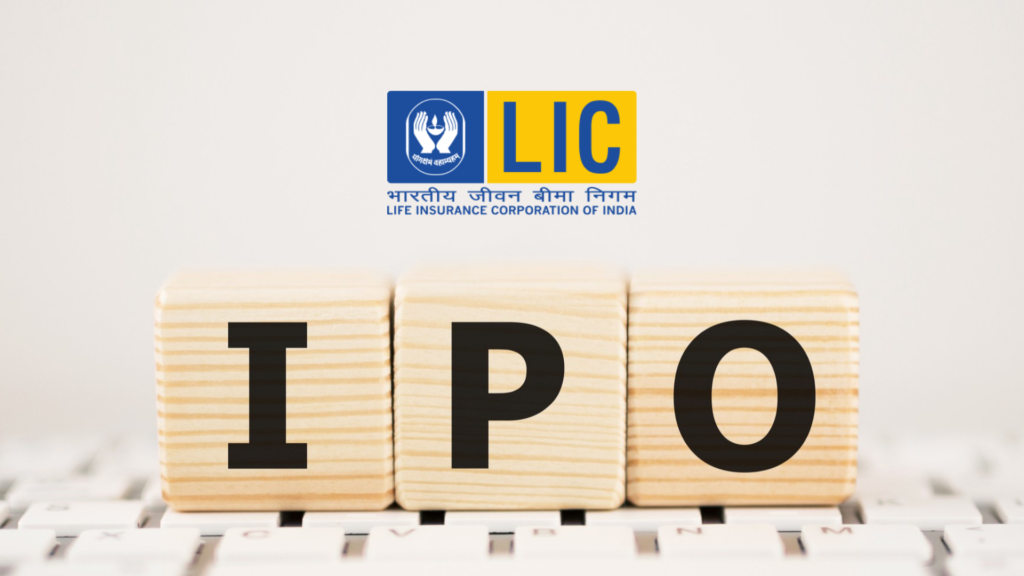September 13, 2021
either/view ⚖️
Public good or public market good?
To: either/view subscribers
Good morning. Our favourite food chain McDonald’s has brought new twists to its menu. No, it’s not a different burger variety. This new innovation will tickle your taste buds and bring you closer to your home.
Yes, you guessed it right. McDonald’s India is adding a special beverage innovation in its McCafe menu. You can now get your treasured masala kadak chai full of herbs and spices in latte texture. All at ₹99. Don’t worry. If you’re not a tea lover, the restaurant has got Turmeric Latte for you. It’s a 2.0 version of your homemade Haldi Doodh – tasty, healthy and unique at ₹140. So, go grab a cup of your liquid delight and enjoy your day!

📰 FEATURE STORY
LIC’s proposed IPO – Is it really required?

Life Insurance Corporation of India (LIC) is a household name. Over the years, LIC has gained our trust and helped us lead a better life. It has also propelled the Indian economy. Last year, the government revealed that LIC will soon launch an initial public offering (IPO) and enter the share market. The government strongly believes that this move will benefit retail investors and increase transparency. However, it has received sharp criticism from experts who argue that there is no need for an IPO.
Context
Life Insurance Corporation of India was established in 1956 through the LIC Act. Nearly 245 insurance companies joined hands to form LIC. The company is an undertaking of the government of India. So the stakes are primarily owned by the government itself. Through the proposed IPO, 10% of the company’s stakes will be up for grabs by private investors. And the expected value of this sale might exceed at least ₹1 trillion.
The company is India’s largest life insurer, with a market share of around 66%. Its assets are valued at over ₹34 trillion. To further maximise LIC’s potential, Finance Minister Nirmala Sitharaman proposed to amend the LIC Act rules and list the company for IPO. This happened during the Union Budget 2020-21.
Before we delve into the details, we will look at what an initial public offering is. An IPO is when a company sells some of its shares to institutional investors for the first time. To facilitate this process, the said company will rope in investment banks. These banks will analyse the shares to be listed and guide the company through the stock exchanges. In the case of LIC, ten merchant bankers such as Kotak Mahindra Capital Company, Goldman Sachs India Securities, JP Morgan and others have been chosen.
However, many people have opposed this move. They say the IPO would go against the concept of LIC which claims “people’s money for people’s welfare.” Once the company enters the stock market, it will work towards maximizing profits for its shareholders. Thereby, forgetting the interests of and promises to its policyholders.
While there is a constant battle between the supporters and critics of the IPO, the much-awaited dates for the IPO release are not yet finalized. It is expected that the government will list the company by March 2022.
LIC IPO is a wonderful opportunity
During the rough economic times due to the pandemic, the government has strategically planned several ways to bolster the economy. So far, they have disinvested many assets and raised over ₹57 billion. The target is to achieve ₹1.75 crore in the current financial year. By enlisting LIC in the IPO, they would receive a huge economic boost. This is the most prominent reason for the government to open an initial public offering for the company.
Upon getting listed, experts say that LIC could become India’s largest company by market capitalization. It is expected to surpass the market cap of Reliance Industries Ltd. With this prediction, it is easy to believe that the company will capture the attention of many retail investors. Ultimately, the government can access the much-needed capital from this disinvestment.
Now that we have seen the advantages for the government, we’ll get into how the IPO could prove super beneficial for the investors. After LIC enters the IPO, the company will become more transparent. There will be more discipline in the organisation. All of this is essential for any company in the share market. Till now, there have been grumbles that LIC is not very transparent in terms of its balance sheet and accounting. But this listing will ensure that LIC will have to tread towards more transparency. This is happy news to the investors as well as policyholders.
Moreover, the government is confident that LIC will not be privatized. In the initial 5 years, the government will hold at least 75% of the stakes. Following this period, the government has assured that it will be in charge of 51% of the shares. Therefore, there is clearly no chance for privatization of the most cherished Indian insurance company.
Importantly, the IPO will not leave behind the LIC policyholders. 10% of the issue will be reserved for the policyholders. They will also get an exciting bonus in the form of special discounts. Additionally, as per IPO rules, even LIC employees will receive a discount on the floor price of the share. So when LIC enters the market, it will retain the trust of its policyholders and will continue to work for their benefits. The extra investment is just an add on that would push the company to help the policyholders more effectively.
In totality, the listing would enable LIC to be more efficient. For years, the company has stepped in to invest in weak financial firms to help them grow. In the process, LIC has lost a lot of money. This IPO will put an end to all such tricky situations for the company. This is mainly because, once the company is open for public offering, it will be answerable to its shareholders. Investors can question LIC for its investments. So, the company will be careful in making the right investment choices. This sovereign guarantee will appeal to the foreign investors and others. Eventually, this IPO would work wonders for everyone – the government, policyholders, investors and for the company itself.
LIC IPO is a bad idea
The first question of any critic is why does LIC need an IPO at all. The insurance company has achieved many wonderful laurels without getting listed for several decades. During dire times like calamities across the country, LIC has fully settled all claims without budging. Across the world, LIC has been numero uno in claim settlement. All of this urges experts to see LIC as the reliable backbone of our economy. So they are not quite satisfied with the claim that LIC will be able to unlock its real value only upon listing in the stock market.
Let’s set aside the glorious awards and look at the Indian stock market. Only about 2% of the population is involved in trading. It has raised many eyebrows on how such a small population could unveil the true potential of the mammoth fincorp. So this IPO is seen as only the means to satisfy the retail investor.
LIC employees also aren’t very pleased with this move. Many have come together and protested against privatization of the company. Now, if we decode the acronym IPO, an initial public offering does not mean privatization. But LIC officers wind the clock and argue that when nationalized banks were listed in stock market, the government assured that it would not lead to privatization of banks. However, they have now sprung a surprise that public sector banks will be privatized. The same could happen with LIC. If this happens, the Indian economy could take a fall.
To adjust to the market demands, the company will have to undergo multiple modifications. LIC must bring on board more stringent protocols, technology and resources. This would disrupt the internal setup of the company. Experts predict that all this would mean lesser recruitment, more outsourcing and could ultimately lead to job losses within the company.
Besides, critics point out that an IPO is not needed to discipline or make LIC transparent. As it is, the company releases public disclosures every quarter. Reports of how it functions are also handed in every month to the regulator. It also displays its book of accounts to the Parliament. Overall, how can a company that has bagged awards and credits for being transparent be made more transparent is a question raised by critics.
Lastly, LIC is known for its brand value of trust. Since 1956, people have banked on its promise of providing insurance to the weaker sections of society. The company’s diligence towards this social objective has gained momentum over the years. But when the equity of LIC is up for sale, the image of the company would take a setback. The company which is synonymous with helping the vulnerable might turn its attention to maximising profits. This would break the trust of the 40 crore policyholders.
🕵️ BEYOND ECHO CHAMBERS
For the Right:
Zomato, Kent, Rolling Stone — Casteism in Indian ads, marketing and how not to say sorry
For the Left:
Traumatic Episodes of Pure Spite Against Hindu Community As Recalled by a Hindu on Foreign Campus
🏴 STATE OF THE STATES
Unexpected new face (Gujarat) – In a surprise move, first-time BJP MLA Bhupendra Patel has been announced as the next Chief Minister of Gujarat. After the sudden resignation of outgoing CM Vijay Rupani on Saturday, speculation was rife regarding the new person for the job. Bhupendra Patel hails from the Patidar community, and holds a diploma in civil engineering. He became the MLA from Ghatlodia constituency in Ahmedabad in 2017, after winning by a record margin of 1.17 lakh votes. Political analysts were taken by surprise with this decision.

Facebook to the rescue (Delhi) – Social media platforms have been known for being ideological battlegrounds. But they can also help save lives. A man based in Delhi recently posted on Facebook saying that he wanted to end his life due to a failed relationship and loss of interest in studies. Facebook officials in Ireland detected the post as it contained suicidal content, and alerted the Cyber Cell of Delhi Police through the Indian Embassy. Through location tracking of the man’s social media account, the police found him roaming near a bridge from where he had planned to jump off from. He was later counselled by the police and doctors and handed over to his family.
Incentives for buyers (Tamil Nadu) – Car manufacturer Ford’s decision to exit India has put a spanner in the lives of over 2000 employees working at the company’s factory in Maraimalai Nagar near Chennai. To ensure their well being, the state government has offered to provide special incentives to attract potential buyers of the factory. The sale process of the 350 acre factory will be fast tracked by the government, and all approvals will be processed smoothly. The buyer will get the same incentives that are applicable to any entity setting up a greenfield plant in the state.
Sad story (West Bengal) – Ira Basu, former West Bengal Chief Minister Buddhadeb Bhattacharya’s sister-in-law, has been sleeping on the footpaths in Dunlop area for the past two years. She has a PhD in Virology, and is very fluent in English and Bengali. In her earlier years, she used to be a state-level athlete and participated in table tennis and cricket matches. She taught life sciences at the Priyanath Girls High School for 34 years, before retiring in 2009. After her current plight went viral on social media, the administration picked her up and put her in a medical facility for treatment.
Tribal welfare (Assam) – Chief Minister Himanta Biswa Sarma stated that 400 ‘Van Dhan Vikas Kendras’ will be set up in the state to enhance the livelihood of tribal people. A typical ‘Van Dhan Vikas Kendra’ comprises of 20 tribal members. 15 such kendras comprise a cluster. These clusters help in promoting tribal arts and crafts, by leveraging economies of scale and market linkages. They also help in creating entrepreneurship opportunities for the people.
🔢 KEY NUMBER
3 – Indian villages nominated for the ‘Best Tourism Village’ category in the United Nations World Tourism Organization (UNWTO) award. The three villages are Madhya Pradesh’s Ladhpura Khas village, Meghalaya’s Kongthong village, and Telangana’s Pochampally.

